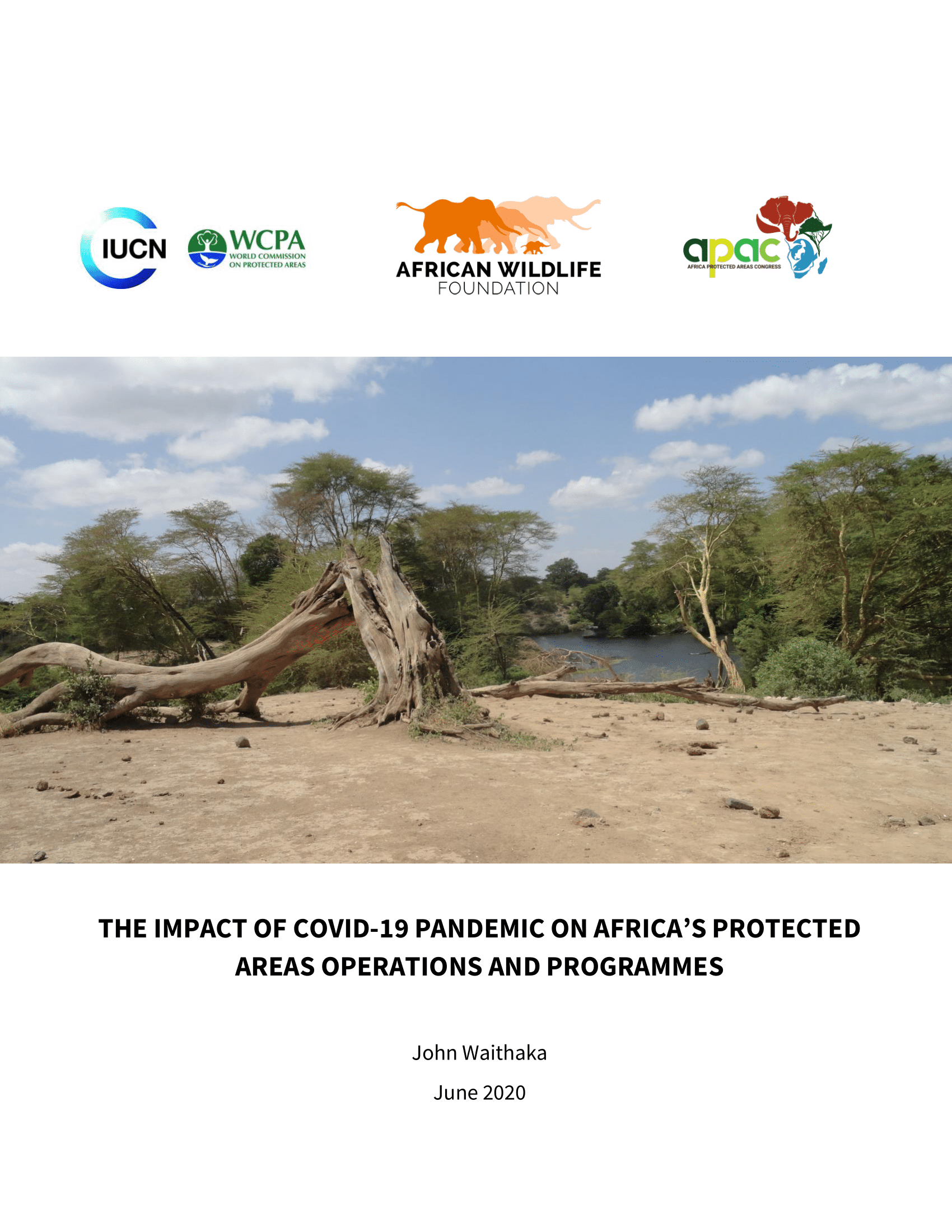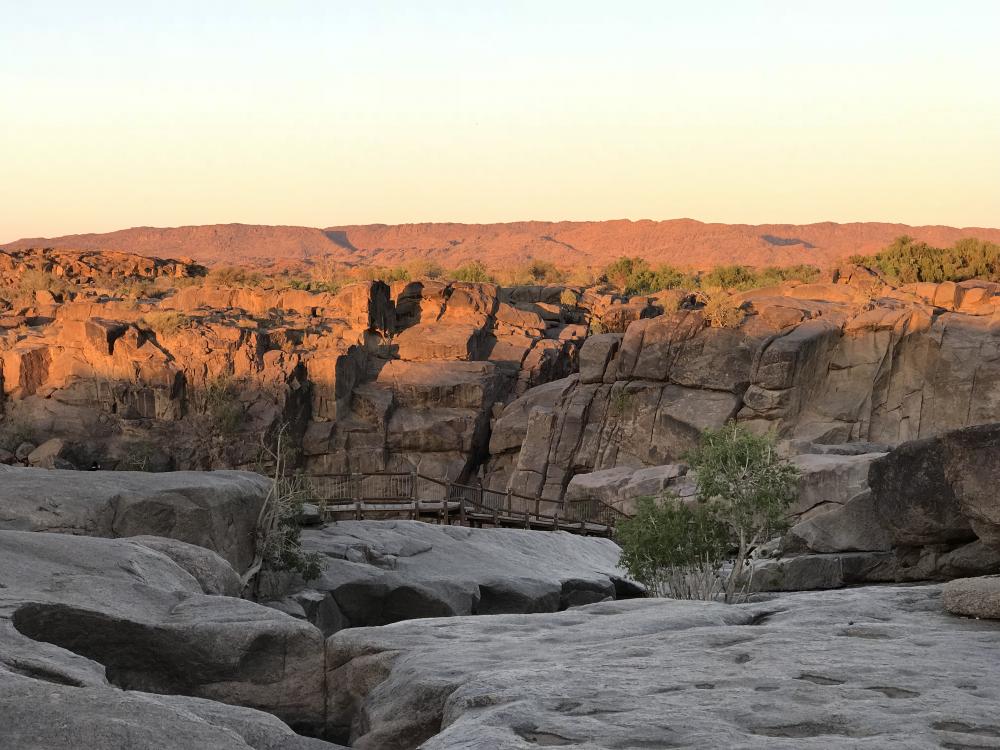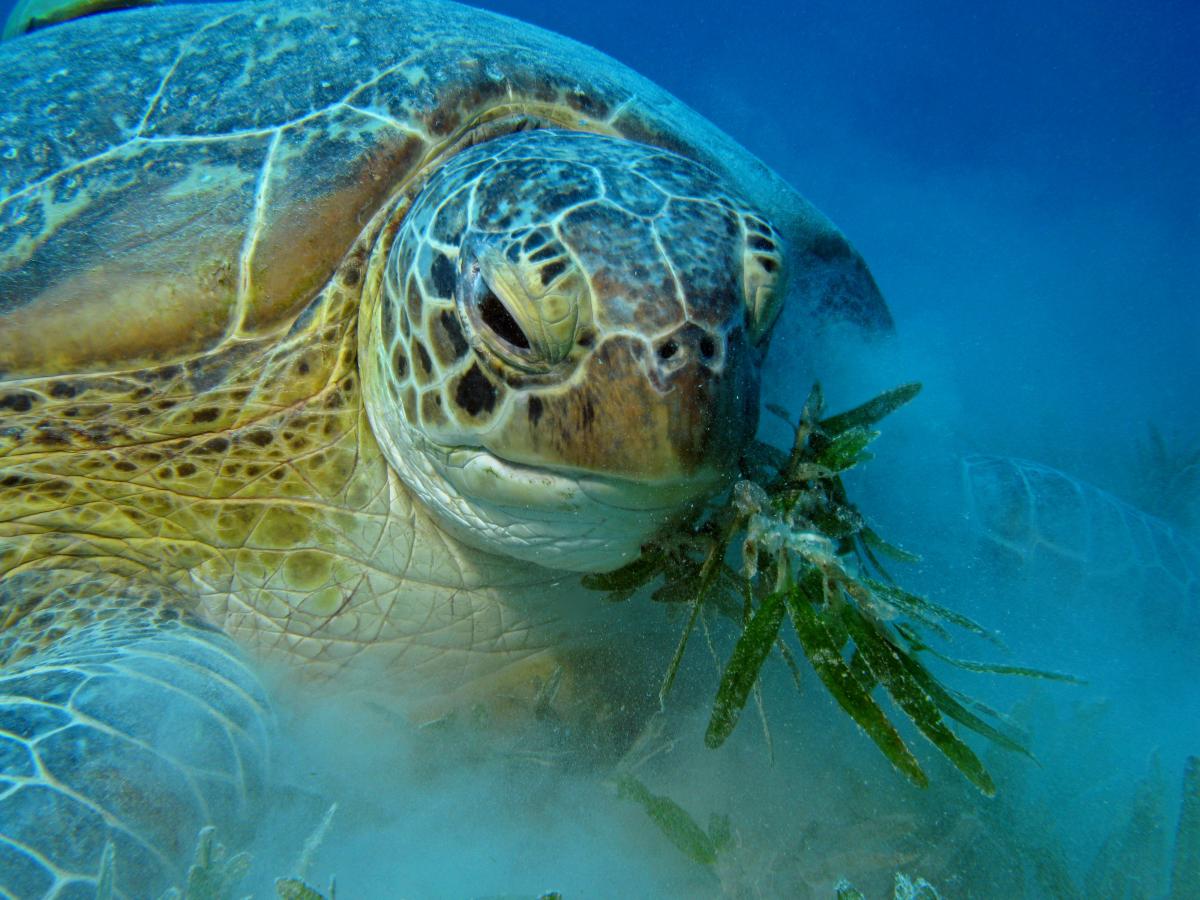The impact of COVID-19 pandemic on Africa’s protected areas operations and programmes
The measures taken to prevent or control the spread of the COVID-19 pandemic introduced challenges in the management of Africa’s protected areas (PAs) that had never been experienced before. As a result, most operations were scaled down or suspended, visitor facilities closed to the public, workplaces shut, “non-essential PA staff” withdrawn from their duty stations, and important supply chains disrupted, all significantly affecting critical day-to-day operations in protected areas.
 Photo: John Waithaka
Photo: John Waithaka
The nineteen countries that responded to the questionnaire were Algeria, Benin, Cameroon, Chad, Ethiopia, Ghana, Guinea-Bissau, Madagascar, Malawi, Mozambique, Niger, Nigeria, Rwanda, Sao Tome and Principe, Seychelles, Somalia, Sudan, Swaziland and Uganda. Ten of these were from the Eastern and Southern African region while the other nine were from the Western and Central African region.
The results show that the measures taken to contain the spread of COVID-19 pandemic had significant impacts on all the assessed operations and programmes, some to a lesser and others to a greater degree in different countries. Most countries reported high COVID-19 impacts in activities related to monitoring illegal wildlife trade, gathering security intelligence and carrying out security investigations.
The impact of the pandemic on revenue generation was most sobering. Nearly half of PA agencies across Africa reported that they could only maintain basic operations for up to three months if the restrictions imposed by COVID-19 continued to be in force. This loss of income to already underfunded PAs significantly affected their ability to perform basic functions, including payment of salaries and protecting endangered species, monitoring illegal wildlife trade and protecting local communities from damages caused by wildlife.
The collaboration between PAs and their key partners, including local communities, governmental and non-governmental organizations, researchers and private land owners were also impacted by the pandemic, further diminishing the resources they contribute to support PAs and neighboring communities.
The sudden closure of tourism related community enterprises caused loss of jobs, undermined many development projects that were supported by income from tourism and weakened collaboration with investors. Loss of livelihood may force some communities to turn to wildlife consumption if other survival options dry up. The survey results strongly suggest that local people will need to be better supported and economically empowered for the roles they play in conserving nature for the benefit of humanity.
Surprisingly, supporting conservation outside protected areas is among the highest priorities for protected area agencies, a view expressed by 84% of the countries. This attitude by PA Directors provides strong grounds for enhancing collaboration between PAs and local communities in implementing the ecosystem-based approach to nature conservation, an important step in creating more space for nature, promoting respectful coexistence between people and wildlife and preventing future pandemics.
The pandemic has caused the deterioration of general security both inside and outside PAs, increased vulnerability to PA resources and values and loss of livelihoods for neighboring communities. It has impaired collaborations with key partners and heightened threats from human wildlife conflicts. The absence of emergency response guidelines and an overall weak preparedness capacity to deal with a pandemic of this proportion was recognized as a key weakness in PA management. This, coupled with national COVID-19 response strategies prioritizing health and issues of water and food security resulted in PAs being categorized together with sectors that provided “non-essential services” hence not able to access emergency funding. As a result, PA management capacity and effectiveness have been weakened and the overall mandate of protected area agencies significantly compromised.
There were some differences in the impacts of COVID-19 between Eastern and Southern African countries on the one hand, and Western and Central African countries on the other. More countries in Eastern and Southern Africa accorded high importance to most of the 23 operations than did countries from Western and Central Africa. For example, 90% of the countries in Eastern and Southern Africa accorded high importance to managing human wildlife conflict while only 44% of the countries in Western and Central Africa accorded human wildlife conflict a high importance rating. Similarly, high impact of COVID-19 on human wildlife conflict operations was reported in 80% of the countries in Eastern and Southern Africa and by only 22% of the countries in Western and Central Africa. This observation provides a justification for creating a platform for PA Agencies to share experiences, solutions and lessons for managing protected areas in order to learn from each other and to maximize benefits of protected areas to nature and people.
It will take some time to understand the full damage and range of impacts caused by this pandemic. However, the survey result identifies the areas that need urgent support to strengthen the ability of PAs to respond to COVID-19 and future pandemics. They include funding, enhanced technical support, skill development, hiring of more staff, provision of relevant equipment, measures to stop the spread of the disease and strengthening and broadening partnerships. Nevertheless, urgent support should be provided to PA agencies and other actors to help reduce poaching, eliminate illegal wildlife trade, minimize human wildlife conflicts and support the livelihoods of local communities.
As explained in more details in the report The Impact of COVID-19 Pandemic on Africa’s Protected Areas Operations and Programmes, Africa must recognize the centrality of protected areas in maintaining human health and well-being, and drives home the message that we cannot continue to ignore the role healthy nature plays in making life more livable. The links between protected areas and human health and the need to create stronger partnerships and alliances between the conservation and health sectors must become a key theme when planning how to prevent or cope with future pandemics. Through COVID-19, a strong case for conserving and protecting nature and investing in the restoration of degraded ecosystems has been made. A continent-wide system of healthy, effectively managed, ecologically representative and well-connected protected areas will play a central role in enhancing both environmental and human health, and in preventing future pandemics of this magnitude.
John Waithaka, Ph.D.
IUCN WCPA Regional Chair, East and Southern Africa,
Director, Africa Protected Areas Congress





